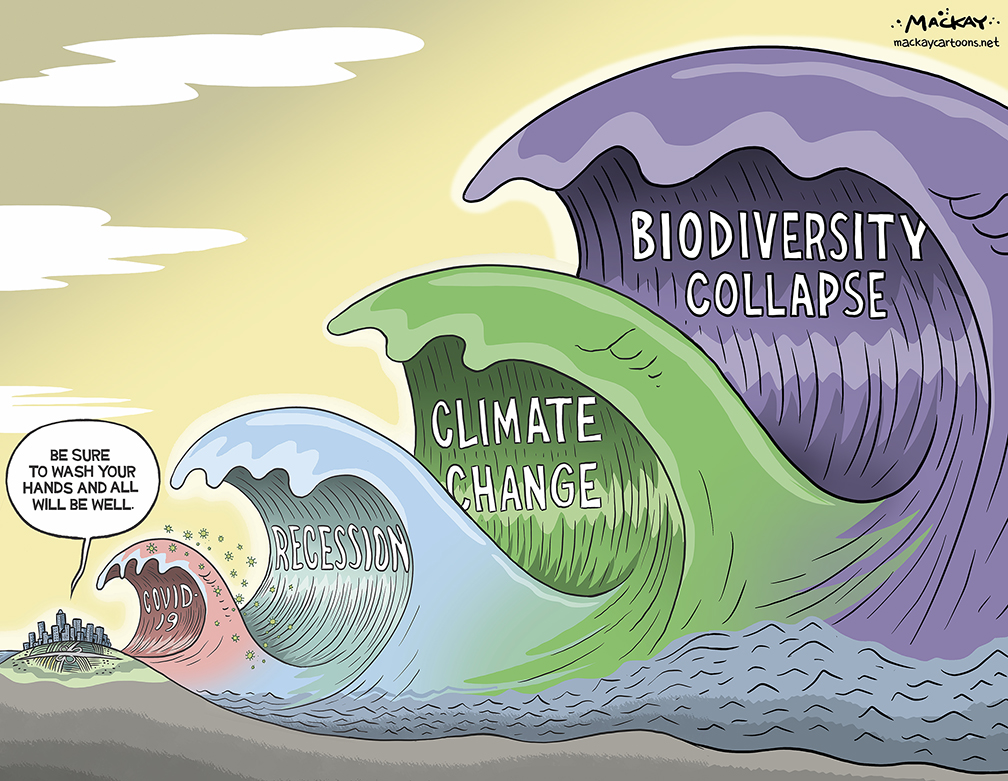A WORD FROM THE SCIENTIFIC DIRECTOR
We are living crazy times! The world is struggling with a major pandemic for more than a year, with dramatic consequences in terms of human lives lost and economic costs. But paradoxically, this crisis reduced (temporally) our impact on the planet, and thus might have also some positive consequences on biodiversity. Now that our economies are starting over, the question is now much we will have learned from the Covid crisis and its side-effects on the environmental crisis, so we do not go back to the business-as-usual GIEC scenario and end up losing on both sides.
The scientific community took the opportunity of the Covid crisis to experiment how science could be made through virtual interactions. Synthesis centers have been at the forefront of this “experimentation” as our core activity is to gather scientists from all over the world. We had to rapidly adapt to supporting fully virtual working groups and after a year we can conclude that virtual meetings, while providing a bridge during the pandemic, cannot replace intense, in-person immersion meetings (Srivastava et al., 2021). Science and particularly synthesis science is also about social interactions between people : these direct interactions fuel collective and creative thinking needed for groups to work on what is planned, and more importantly imagine the unplanned. But, as scientists and more importantly environmental scientists, we must be at the forefront of the paradigm shifts our societies need to go through, to mitigate the environmental crisis. We are thus thinking of re-organizing biodiversity synthesis centers in regional hubs where research teams within each geographic region could meet simultaneously as in-person working groups. These “regional hubs” would also coordinate virtually with each other among synthesis centers. This will not preclude the need to gather whole groups within the lifetime of a project but might significantly reduce the amount of travels and thus the carbon impact of the synthesis working groups. This reorganization of our scientific models will take some time but the price is worth to pay!

© Graeme Mackay
The Covid crisis cannot make us forget about the ongoing environmental crisis, it should rather exemplify how humanity can work together to solve a global crisis; it should also exemplify how much costly it is to solve a crisis when the crisis is at its climax. The environmental and biodiversity crisis, are not at their climax, they are only beginning. Let’s hope that we will pay the price needed to stop these crisis before we cannot afford to pay it anymore …
These last six months have been particularly busy for the CESAB team and groups. This newsletter reflect this rich activity and the best is yet to come with many new groups starting this year and next. I would like here to thanks thoroughly the CESAB and FRB staff as well as the CESAB scientific committee for the incredible work they already have achieved this year; and thanks the whole FRB and its founders to make all this possible. With the 4 projects funded in the 2020 call and the upcoming 2 projects funded via our France-Brazil joint call, the CESAB will host 20 active groups by 2022. This strong and positive dynamics reflect our collective willingness to fulfill the need for synthesis in biodiversity science as well as the incredible quality and maturity of the scientific community on this fundamental issue. Synthesis will help us tackle the biodiversity crisis before it reaches its climax and I am proud that, at its small scale, the CESAB is helping toward this aim.
Nicolas Mouquet
![[Call for proposals FRB-CESAB 2020] Four projects selected](https://www.fondationbiodiversite.fr/wp-content/uploads/2020/09/AAP_BLANC_2020_web.jpg)